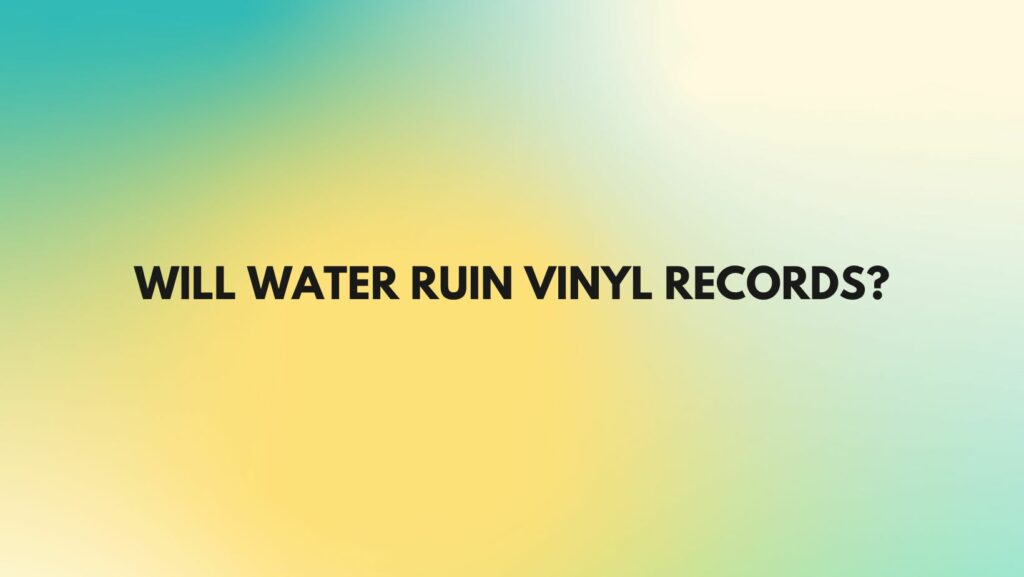Vinyl records have experienced a resurgence in popularity, captivating music enthusiasts with their warm tones and tactile charm. Yet, amidst the vinyl renaissance, questions about the medium’s vulnerability to water linger. Will water ruin vinyl records? This inquiry delves beyond surface-level curiosity, striking at the heart of vinyl’s durability and resilience. In this exploration, we unravel the intricacies of vinyl’s relationship with water and dispel common misconceptions surrounding its impact.
The Anatomy of Vinyl: To comprehend the effects of water on vinyl records, it’s essential to grasp the composition of these cherished artifacts. Vinyl records consist of polyvinyl chloride (PVC), a durable plastic renowned for its flexibility and longevity. This composition renders vinyl inherently resistant to many environmental factors, including dust, scratches, and moderate fluctuations in humidity.
Understanding Water’s Threat: Despite its robust composition, vinyl remains susceptible to the perils of water exposure. When water infiltrates the grooves of a record, it can seep into the porous material, causing irreversible damage. The primary concerns associated with water exposure include warping, mold growth, and degradation of the vinyl’s surface.
Warping: Water-induced warping occurs when moisture causes the vinyl to expand unevenly, distorting its shape and compromising playback quality. Warped records exhibit noticeable curvature, rendering them prone to skipping and distortion during playback.
Mold Growth: In damp environments, water can foster the growth of mold and mildew on vinyl records, tarnishing their appearance and compromising their structural integrity. Mold growth not only detracts from the aesthetic appeal of records but can also pose health risks to individuals handling them.
Surface Degradation: Prolonged exposure to water can lead to surface degradation, manifesting as cloudiness, discoloration, or delamination of the vinyl. These alterations diminish the record’s sonic fidelity and aesthetic appeal, detracting from the listener’s overall experience.
Mitigating Water Damage: While water poses a formidable threat to vinyl records, proactive measures can help mitigate its impact and preserve the integrity of cherished collections. Storing records in a controlled environment with stable humidity levels is essential to prevent moisture-related issues. Additionally, investing in high-quality record sleeves and storage solutions provides an added layer of protection against water damage and environmental fluctuations.
In the event of water exposure, prompt action is paramount. Remove affected records from the water source immediately and allow them to air-dry on a flat, non-abrasive surface. Avoid exposing records to direct heat or sunlight, as these can exacerbate warping and surface damage.
Conclusion: In the realm of vinyl records, the specter of water looms as a potential threat to cherished collections. However, armed with knowledge and proactive measures, enthusiasts can safeguard their vinyl treasures against the ravages of moisture. While water may test vinyl’s resilience, it also underscores the enduring allure of analog sound and the enduring bond between music and materiality. As custodians of vinyl’s legacy, let us remain vigilant in our efforts to preserve its timeless beauty for generations to come.

